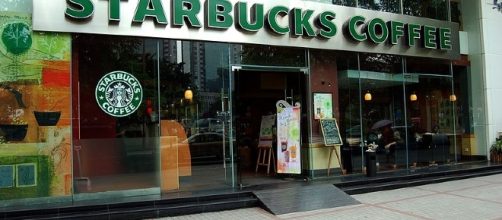starbucks has decided to buy all of the stores it owns in china, which number over 2800, in a joint venture in with the Taiwanese department store President Chain Store Corp., and Taiwan-based food giant Uni-President Enterprises Corp. It has also decided to close all of its Teavana stores.
Cooling growth in the United States
Starbucks has seen decreased revenue flowing in from its roughly 16,000 stores based in the western hemisphere, which includes the United States, China, and Latin America. The announcement came as Seattle-based Starbucks announced net income fell 8.3% to $691.6m for the three months to July - only just matching market expectations.
With the huge growth in popularity of online shopping as well as door-to-doot delivery, consumers are taking less time to go to physical stores and malls. This has left Starbucks with fewer customers.
Big opportunities in China
Starbucks spent $1.3 billion on buying all of its stores in China, a giant investment. The new CEO Kevin Johnson, who replaced co-founder Howard Schultz last year, believed it was a necessary step. “The growth opportunity in China is unparalleled," said Johnson in a Reuters interview. “Unifying the Starbucks Business” under one single company, our company “reinforces our commitment to the market".
China, although it already has 2800 stores, represents an essentially untapped market for Starbucks with enormous potential for growth.
By 2021 Starbucks hopes to have opened 5000 stores in China.
The Chinese economy is growing at 7% each year, with thousands entering the middle-class every day. As Chinese millennial become more well-endowed, Starbucks is hoping that they will more reach more liberally for Starbucks’s iced coffees and mocha frappes. Many analysts predict that growth will continue to zoom ahead as the Chinese government supports increasing infiltration from international businesses.
Teavana no longer profitable
While Starbucks is making a huge leap forward in its purchase of Chinese stores, it is taking a step back with Teavana, closing 379 stores. Teavana is an off shoot of Starbucks, perhaps an idea comparable to the Unicorn Frapee in its unpopularity.
It was purchased in 2012 and was designed to market exotic teas to mall-goers. Unfortunately, the fiscal year of 2012 proved to be unprofitable for mall-based business, including JC Penny and Game Stop. Teavana has not has done as well as Starbucks executives would have liked. According to Mashable, it produced just $1.6 billion a year.
As a result, decision makers at Starbucks’ Seattle headquarters have decided to shut the project down completely. This will mean laying off 3000 employees. Starbucks plans to make up for this by hiring nearly 60,000 workers to work in its regular stores. Additionally, rather than doing away with Teavana completely, Starbucks plans to blend some of its products into its line up and offer them in its remaining stores.
Teavana has not has done as well as Starbucks executives would have liked. According to Mashable, it produced just $1.6 billion a year. As a result, decision makers at Starbucks’ Seattle headquarters have decided to shut the project down completely. This will mean laying off 3000 employees. Starbucks plans to make up for this by hiring nearly 60,000 workers to work in its regular stores. Additionally, rather than doing away with Teavana completely, Starbucks plans to blend some of its products into its line up and offer them in its remaining stores.


